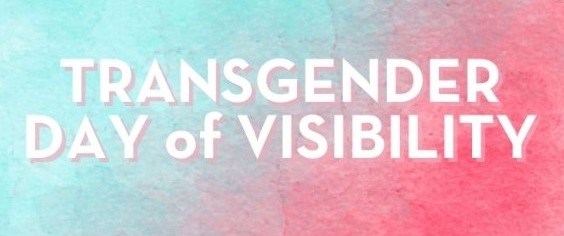
Finding a qualified and affirming psychotherapist for your LGBTQ+ / questioning child or adolescent can feel like a challenge for parents, guardians or caregivers, but it is so important for quality mental healthcare, and to avoid serious inequities of care. This blog shares information and offers suggestions for conducting your search for an LGBTQ+ affirming child or adolescent therapist, to help make the process easier and the treatment more effective.
As you begin your therapist search, it’s helpful to think of the process as similar to any other important consumer choice. Being as informed as possible and knowing the questions to ask can help you find the right person to help support the mental health needs of your LGBTQ+ child or teenager.
Why might a parent or guardian seek a therapist for their LGBTQ+ child or teenager? In most cases, it’s for exactly the same reasons as parents or guardians of kids who don’t identify as LGBTQ+. Children and adolescents can experience / struggle with many of the same mental health challenges as adults. These can include anxiety, depression, trauma, life changes, etc. And for kids who do identify as gay, transgender, gender nonbinary, or gender diverse, or who wish to safely explore these feelings, it’s vitally important to work with a therapist who specializes in supporting teens and children and who is also LGBTQ+ affirming, so they can effectively and compassionately address the intersectionality of mental health diagnoses and a queer or questioning identity. An LGBTQ+ identity alone is not necessarily a reason to seek psychotherapy for your child or teen. But affirming therapy can be an effective treatment and support for kids who need assistance when issues around identity or sexual orientation do arise.
You should set the bar high for your child’s new therapist. Because every LGBTQ+ child / adolescent deserves a psychotherapist who is:
- experienced and skilled in working with children and/or teens
- LGBTQ+ affirming and has lived experience working directly with the LGBTQ+ community
- culturally competent and well-trained in working with diverse clients
- trauma aware and informed
Here are some suggestions to help guide your initial search for an LGBTQ+ mental health professional for your LGBTQ+ child or teen:
- Gather referrals, recommendations & suggestions. If your heath insurance provides mental health coverage for your child / teen, you can use their provider directory to locate therapists in your area. You can also speak with their pediatrician, a trusted friend or parent, or use an online directory such as Psychology Today to suggest local counselors, therapists, or psychologists that match your search criteria.
- Does your child’s school offer free counseling? In most situations and for most kids, it’s helpful to have an on-site mental health resource who is familiar with their struggles and can be an ongoing source of support during school. While the availability and quality of counseling services vary by school, it can be effective to layer-in school counseling as an additional way to provide support for your child, especially for school issues.
- Does the therapist work with your insurance? This is usually one of the first questions people need to ask a prospective new therapist. We also recommend you contact your insurance company for detailed information about benefits and limits of coverage for your child. Even if the therapist doesn’t work directly (in-network) with your insurance company, you may be able to get claims processed for reimbursement as out-of-network. You should ask the therapist if they assist with this process.
- Choose a clinician with expertise in working with children and / or adolescents. Ideally, the therapist should specialize in working with minors, or at minimum have extensive experience in child and adolescent development / developmental concerns.
- Choose a therapist with experience working with the LGBTQ+ community. To help ensure they can provide your child / teen with the support and resources they need, find someone who works directly with clients in the LGBTQ+ community, and understands the struggles faced by the LGBTQ+ community and those who are questioning their gender or sexual identity. Therapists who are committed to supporting kids and LGBTQ+ clients will typically share those specialties on their website and on directories such as Psychology Today. You can also ask the therapist directly if they have experience working with LGBTQ+ minor clients.
- Look for cultural competence and diversity training. A therapist’s cultural competence and diversity training should also be considered, regardless of your, your child’s or your family’s cultural, ethnic, religious or racial background. Why? Because the lesbian, gay, bisexual, transgender, or queer / questioning (LGBTQ+) community is made up of a broad cross-cultural range of members, and comprises all races, ethnic and religious backgrounds, and socioeconomic statuses. Therapists who prioritize LGBTQ+ client care will usually also promote their competencies in this area.
- Look for trauma awareness and trauma-informed therapy. When a therapist is trauma-aware and trauma-informed, it means that they understand the impact of trauma and strive to provide a supportive and safe therapeutic environment for clients to process their experiences. While your child may not have experienced trauma, noting that they have trauma training or are skilled at working with clients who have experienced trauma on their website / in online directories / during discussions can be another good indicator of an affirming therapist or practice.
- Talk to your child or teen. It’s important to be honest and not conduct your therapist search in secret. It can demean trust, and they’ll likely find out anyway. In an age-appropriate way, let your child know the ways that you are advocating for them, and ask if they’d like to be kept informed or even be involved with the process. Kids can often offer valuable insight and input into what their priorities and preferences are.
Narrow Down the List & Select a Therapist
Once you have a list of therapists, it’s time to narrow it down. If you haven’t done so already, a good way to get more information is to check out their website. You should be able to find information related to:
- the practice’s specialties and areas of expertise
- the therapist you are vetting – including a bio with a picture
- whether they are accepting new clients
- the insurance companies they work with
Based on the info you find on their website, rank your candidates in order of preference and eliminate any that don’t “make the cut”.
Next, reach out to your finalist candidates. You can usually initiate contact via a phone call, email or website contact form. Many practices also offer a secure online inquiry form where you start the process more directly, by sharing information about: (1) your minor child, (2) the concerns or issues they need support with, and (3) any preferences or requirements (gender, identity, etc.) you or your child / teen may have in a therapist. You’ll also be asked about contact info, your insurance coverage (if applicable), your availability for sessions, etc. Be concise, direct, and honest.
After submitting this information, the therapist or their Client Services team will get back to you with either an offer (a specific clinician and meeting time) or to let you know that they are not able to take you on as a new client. Assuming they do have availability, at this stage they should also be able to help you confirm your insurance benefits and coverage (if applicable), as well as the out-of-pocket costs associated with therapy.
Schedule an Initial Session
Even if there isn’t a clear-cut “winner”, following the steps above helped you narrow your list of therapist candidates to a manageable few. Now it’s time to set up an initial session with you, your minor child and the chosen therapist (or the top-choice). This first scheduled session is an opportunity to ask any remaining questions, and to offer your child the opportunity to speak with them and ask questions they may have.This is also the time to conduct an overall “vibe check”, to make sure it feels right, and that both you and your child can connect with and communicate easily with the therapist. And remember, even though you are holding an initial session, you are under no obligation to work with them or to even take their vetting process further if it doesn’t feel comfortable.
Be Committed to Therapy!
Once you’ve found a new therapist who feels like a good fit, it’s time to start working with them! Because scheduling sessions that fit both your and your child’s schedule can sometimes be a challenge, be aware that you might have to rearrange your schedules to accommodate therapy. It’s also important to give the relationship and process some time to develop. Don’t get discouraged if your child initially doesn’t show interest or seem to take therapy seriously. Trust and openness with a child or adolescent client can emerge more slowly than with an adult client. And the initial insecurity or anxiety your child or teen may be feeling can present as aloof nonchalance or irritation / annoyance. Your child’s mental health is important, so keep it up! For your part:
- make it possible for your child to attend therapy as scheduled
- make sure they know why, and don’t trivialize the value of therapy or demean its role
- get your kid to their appointments on time
- engage and pay attention to what the therapist has to say to you
- engage and pay attention to anything your child has to say to you
- give your child space to hold private conversations with their therapist – it’s appropriate that some things remain just between the two of them. The therapist will keep you in the loop and share critical information
some kids may want to keep the fact they’re going to therapy private – from family, friends, classmates, your acquaintances, even from school (if appropriate), and it’s important to honor that as much as possible - know that what you’re doing now will help lay a foundation for your child to be healthier for decades to come.
Click the links for more information about finding an affirming psychotherapist, or getting started with therapy. IntraSpectrum Counseling is Chicago’s leading psychotherapy practice dedicated to the LGBTQ+ community, and we strive to provide the highest quality mental health care for clients of all ages – including kids (age 6+), tweens and teens. For anyone needing affirming and validating support for their LGBTQ+ child or teenager, or healing with any issue, please click here or email us at help@intraspectrum-chicago.com.





 We’re offering three new therapy groups this Summer! Contact us today to reserve your space; the enrollment deadline is June 3rd.
We’re offering three new therapy groups this Summer! Contact us today to reserve your space; the enrollment deadline is June 3rd.